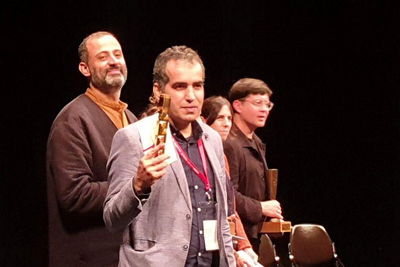Gracefully directed by Arash Eshaghi received the Directors Guild of Japan Award, while Exodus by Bahman Kiarostami won an Award of Excellence in the New Asian Currents section.
Exodus is about migrant workers from Afghanistan who have lined up to leave Iran as the renewed U.S. sanctions have sparked a recession, but first, they must endure interrogations at an immigration center in Tehran.
Gracefully tells the story of an 80-year-old man who was known in his youth for having danced at local ceremonies and celebrations dressed as a woman. Dancing publicly was banned after the revolution and he now lives as a farmer taking care of cows. This film captures one man’s continued pursuit of happiness through dancing.
Iranian cinema at Yamagata festival
A selection of films directed by Iranian filmmakers from the 1960s to 1980s was reviewed in a program during the Yamagata festival, which was held from October 10 to 17.
Iranian cinema “continues to fascinate people all around the world,” the organizers said in a statement for the program titled “Reality and Realism: Iran 60s–80s”.
“This program explores the origins of this pull in the works” screened in the program, the statement added.
Fifteen fiction, documentary and experimental films ranging from shorts to features were reviewed during the program from October 11 to 15.
The program includes Bahram Beizai’s movies The Uncle with a Moustache (1969) and Bashu, the Little Stranger (1985), and Sohrab Shahid Saless’ Black and White (1972), A Simple Event (1973) and Still Life (1975).
Women’s Prison (1965), Women’s Quarter, Tehran Is the Capital of Iran (1966) and The Night It Rained (1967), all directed by Kamran Shirdel, were also discussed.
The selection contained The House is Black (1962) by Forugh Farrokhzad, Deliverance/Release (1971) by Nasser Taqvai, Hossein Yavari (1973) by Khosro Sinai, Tenancy (1982) by Ebrahim Mokhtari, First Case… Second Case (1979) by Abbas Kiarostami and Water, Wind, Dust (1989) by Amir Naderi.
Source: Tehran Times

